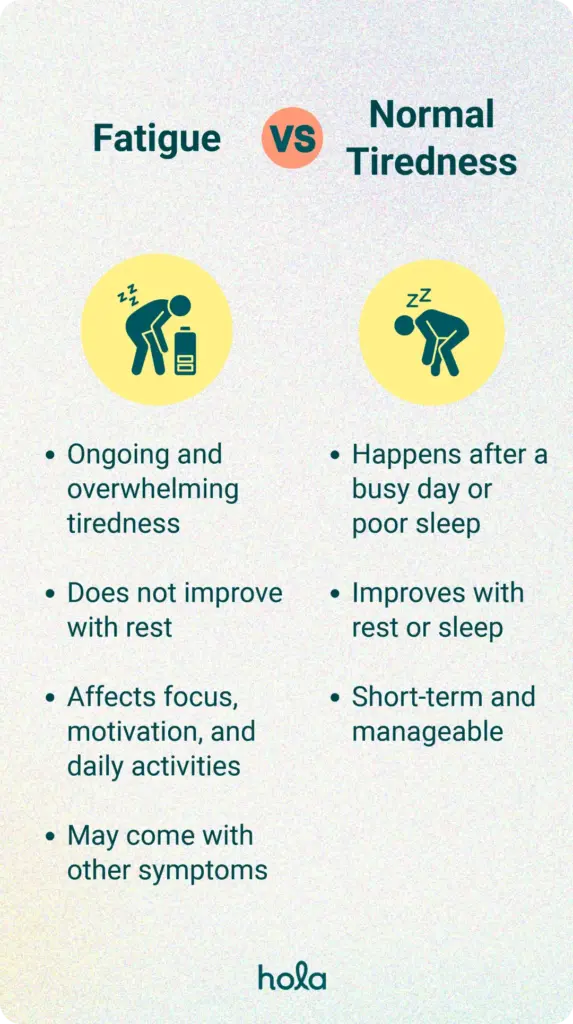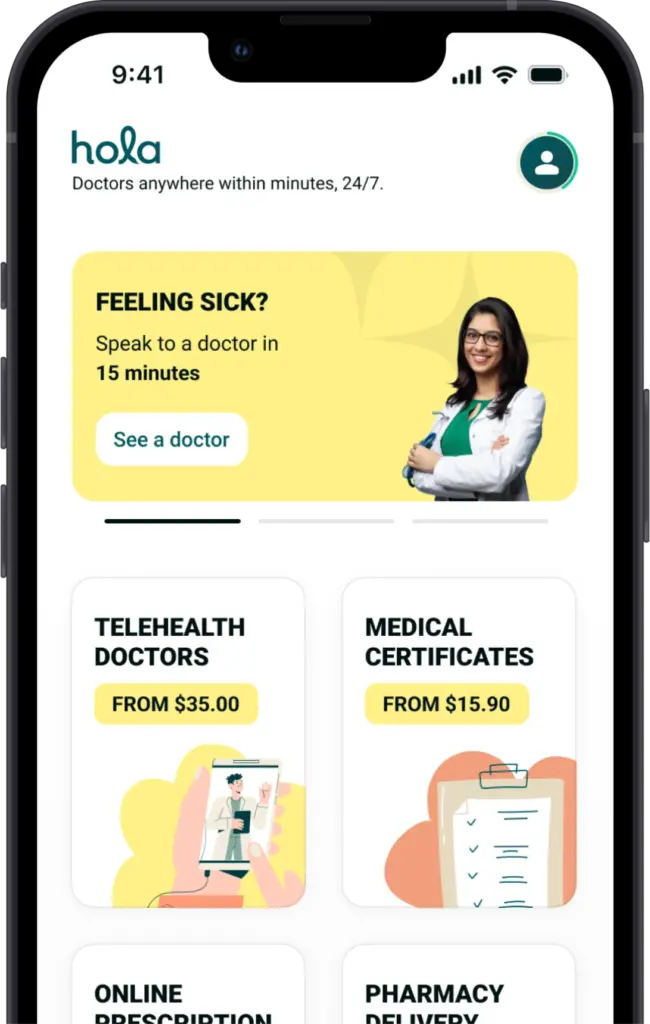- Home
- /
- Health Conditions
- /
- Fatigue
Fatigue
Fatigue means feeling very tired all the time, even after resting, and it can sometimes be a sign of a health problem. Consult an online doctor if you are suffering from fatigue within 15 minutes, 24/7.
When to consult a doctor for fatigue ?
If fatigue is persistent or affects daily life
See a doctor if your tiredness lasts longer than two weeks or starts interfering with work, daily tasks, or concentration.
If fatigue is linked to mental or physical health conditions
Consult a GP if you have chronic illness, depression, anxiety, or ongoing stress and fatigue is becoming more frequent or severe.
If fatigue worsens or does not improve with self-care
Seek medical advice if adequate rest, sleep, and lifestyle changes do not help, or if your symptoms continue to get worse over time.
This guide does not replace professional care. Consult a doctor to manage your symptoms. In emergencies, call 000. The content is research-backed & medically reviewed. by Dr. Ammar AL-ANI, MBChB, CCBST, AMC
Causes
Here are some common causes of fatigue:
- Lack of sleep, insomnia or sleep apnoea
- Physical exertion or inadequate recovery time after overexertion
- Emotional and mental stress
- Poor nutrition and vitamin deficiencies
- Dehydration
- Chronic illnesses such as diabetes, heart disease, thyroid disorders, and chronic fatigue syndrome
- Certain medications, including antihistamines, antidepressants, and blood pressure medications
- Excessive consumption of alcohol or caffeine
- Sedentary lifestyle
- Conditions like depression and anxiety
- Physical conditions such as anaemia, viral infections, fevers, etc.
Symptoms
Fatigue can have physical, emotional, and mental symptoms. It can lead to many issues in daily life, work, or relationships. Most people suffering from fatigue experience at least a few of the symptoms below:
- Constant exhaustion: A constant feeling of lack of energy, even after adequate rest.
- Trouble concentrating: Difficulty focusing, or remembering things, often described as “brain fog.”
- Irritability: Feelings of frustration and irritability even during the slightest change in the situation
- Lack of motivation: No interest in activities or tasks that once brought joy
- Sleep disturbances: Difficulty falling asleep, staying asleep, or experiencing unrefreshing sleep
- Muscle weakness: Reduced strength, making physical tasks feel more challenging.
- Headaches: Frequent headaches or migraines which are often linked to tension or stress.
- Changes in appetite: Either overeating or loss of appetite.
- Mood changes: Increased feelings of anxiety or depression
- Physical symptoms: Body aches, joint pain, gastrointestinal issues and a general feeling of illness

Prevention tips
Restores energy levels: Prioritising quality sleep and regular rest helps the body recover and reduces ongoing exhaustion.
Supports physical health: Eating a balanced diet, staying hydrated, and engaging in light to moderate physical activity can improve stamina and reduce fatigue.
Reduces stress: Self-care practices such as mindfulness, meditation, yoga, or deep breathing help lower stress, a common cause of persistent tiredness.
Improves mental well-being: Taking time for self-care can improve focus, mood, and emotional resilience, helping prevent burnout-related fatigue.
Prevents long-term exhaustion: Regular self-care, especially for professionals under daily stress, helps stop fatigue from becoming chronic.
Hola Health provides a fast and convenient way for you to consult a doctor online in minutes, 24/7 across Australia. Much like an in-person GP clinic, our AHPRA-registered Australian online doctors will conduct a comprehensive assessment to provide the best possible care, instantly.

Speak to our doctors 24/7
Providing consults for
Helpful resources

Download our Mobile App for better performance
- Consult a GP anytime you need to.
- Stay connected wherever you are.
- Experience healthcare, uninterrupted.
 Scan the QR Code to download the Hola app.
Scan the QR Code to download the Hola app. 

